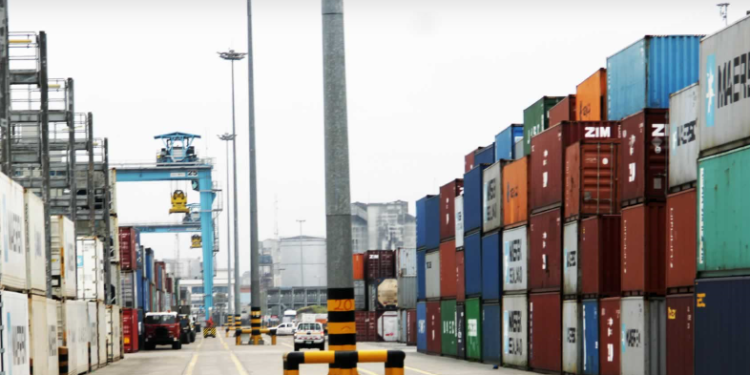(Greenwich Merchant Bank): On the external front, Nigeria’s trade gap widened in the third quarter to a record high, as increased imports and slowing exports in the face of the COVID-19 pandemic gave rise to a NGN2.3trn deficit, according to the National Bureau of Statistics (NBS) records published on Monday.
Nigeria’s Imports and Exports came in at NGN5.38trn and NGN2.99trn translating to a deficit of NGN2.3trn, while on a year-to-date basis, the trade gap stands at a negative NGN4.61trn.
Read also: Global Economy: South Africa Economy Rebounds, as Q3:2020 GDP Grew 13.5% QoQ
Although total exports increased by 34.85% QoQ, the sector took a hit of 43.41% on a YoY basis, reflecting the sustained drop in crude exports, closely linked to OPEC+ output quota on oil production. On top of this, the series of declines across Manufactured goods (-47.7%), Solid minerals (-12.2%), and Raw materials (-61.9%) worsened the downturn.
This, however, contrasted the yearly upsurge of 43.7% YoY observed for Agricultural products. Meanwhile, Imports increased in the third quarter by 33.8% QoQ, after a 10.7% QoQ fall in Q2, pinned by the uptick in Manufactured goods (+23.47% QoQ), as well as a huge jump of 216.28% QoQ in other petroleum products.
In terms of trade relations, the Asian region remained the top destination for imported goods, with China holding the bulk share at 30.51%, followed by Europe and then America. Machinery and Transport Equipment, Chemicals & related products, Food, and Live animals were the most imported products.
Read: Covid-19: U.S FDA approves Pfizer/BioNTech vaccine for emergency use
On the exports’ scene, Europe, Asia, and Africa emerged Nigeria’s main trading partners, even as exported goods to India (NGN500.6bn or 17.9%) grabbed the top position. The major traded products include Crude oil, Vehicles, aircraft, and parts.
With the oil sector projected to gain traction amid a gradual re-opening of the countries of its major trading partners’ (due to the vaccine rollouts), foreign demand is expected to pick up in crude oil and other agricultural commodities.
A sustained production cap of 1.6MMbpd, however, should continue to limit foreign inflows. Pre-existing constraints also emanating from its undiversified and unsophisticated export base bodes ill for the country.
Capital control measures and supply chain disruptions as well, may not see external trade snap back to its pre-pandemic levels. This, coupled with a weaker domestic currency should further deepen the country’s trade deficit. That said, internal challenges on the fiscal front in terms of political and structural weakness alongside policy uncertainties could hurt trade and dampen the prospects for investments.
On the back of these, a proper rejuvenation and incentivization of the Manufacturing sector (contributing 8.9% to total exports) is expected to diversify the oil-dependent economy and at the same time support reserve levels, which will aid the CBN’s intervention in the FX markets and ultimately ease exchange rate pressures.
Growth-boosting reforms should also be tailored to add value to raw materials, as next month’s launch of the African Continental Free Trade Area (AfCFTA) deal calls for strategic policies aimed to upscale exports to other African countries, which should further enhance the competitiveness of domestic products.
Furthermore, efforts should be intensified on modular refineries pending the start of oil production at the Dangote refinery, in other to soften the import bills and even narrow our trade deficit gap.























































